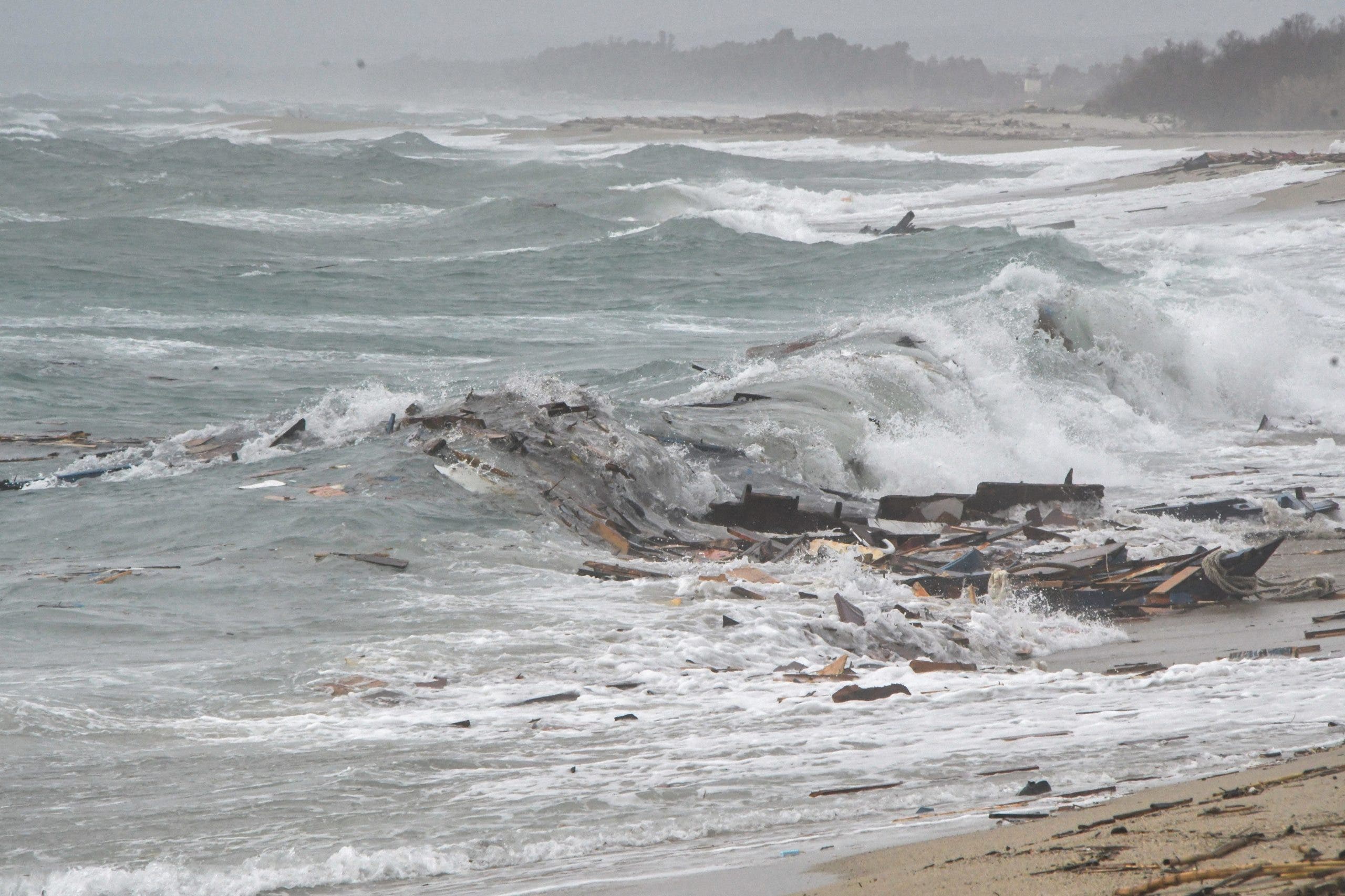Rome (Caasimada Online) – At least 58 people, including women and children, have lost their lives after a wooden sailing boat carrying migrants crashed against rocks off the southern coast of Italy early on Sunday.
The vessel had departed from Turkey with migrants from several countries, including Afghanistan and Iran. It crashed near Steccato di Cutro, a seaside resort on the eastern coast of Calabria.
Authorities reported that the provisional death toll stands at 58, with 81 people surviving, including 20 hospitalized.
Survivors of the shipwreck had reported that some 140 to 150 people were on board the vessel when it left Izmir, Turkey, three or four days ago.
The migrants, mostly from Afghanistan and a few from Pakistan and Somalia, had been fleeing conditions of great hardship, according to Italian President Sergio Mattarella.
It is unclear how many children died in the shipwreck as exact numbers have not yet been released.
Widespread devastation

The wreckage of the wooden gulet, a Turkish sailing boat, was found strewn across a large stretch of the coast, with Mayor Antonio Ceraso of Cutro describing the scene as “a gruesome sight that stays with you for all your life.”
His voice cracking, Ceraso told SkyTG24 news channel, “I saw a spectacle you would never want to see in your life.”
Authorities said that one survivor of the shipwreck was arrested on charges of migrant trafficking.
The tragedy has led to calls for a crackdown on human traffickers who lure desperate people onto boats, often in unseaworthy vessels, and transport them across the Mediterranean to Europe.
Political reaction on migrants
Italian Prime Minister, Giorgia Meloni, has expressed profound condolences and grief for the tragic loss of lives in the recent shipwreck incident.
In her statement, the Prime Minister pledged to take measures to prevent similar disasters from occurring in the future, including the blocking of migrant sea departures.
Since her right-wing administration assumed office in October, it has adopted a tough stance on migration, primarily by implementing stringent new laws that restrict the activities of migrant rescue organizations.
These laws were passed by Parliament and have received final approval on Thursday.
Meloni has blamed human traffickers for encouraging migrants to make the dangerous sea journey to Italy, accusing migrant rescue charities of acting as so-called “pull factors.”
Charities reject this, saying migrants set off regardless of whether rescue boats are in the vicinity.
Spanish migrant rescue charity Open Arms tweeted that “stopping, blocking and hindering the work of NGOs will have only one effect: the death of vulnerable people left without help.”
In a separate statement, Italian Interior Minister Matteo Piantedosi said it was essential to stop sea crossings that offer migrants the “illusory mirage of a better life” in Europe.
Piantedosi emphasized that such crossings enrich traffickers and cause tragedies like the one on Sunday.
International response
Pope Francis, a prominent voice supporting migrant rights, has expressed his concern for all those affected by the recent shipwreck incident.
The pontiff, whose parents were Italian immigrants to Argentina, offered prayers for the victims and their families.
This tragedy underscores the continuing dangers faced by migrants attempting to cross the central Mediterranean, with over 17,000 deaths and disappearances recorded by the United Nations Missing Migrants Project since 2014.
Shockingly, this year alone has seen more than 220 individuals lose their lives or go missing in these perilous waters.
The central Mediterranean route is one of the world’s most dangerous migration routes.
Italy remains a primary destination for migrants seeking entry into Europe by sea, as many individuals hope to reach the more prosperous countries of northern Europe eventually.


